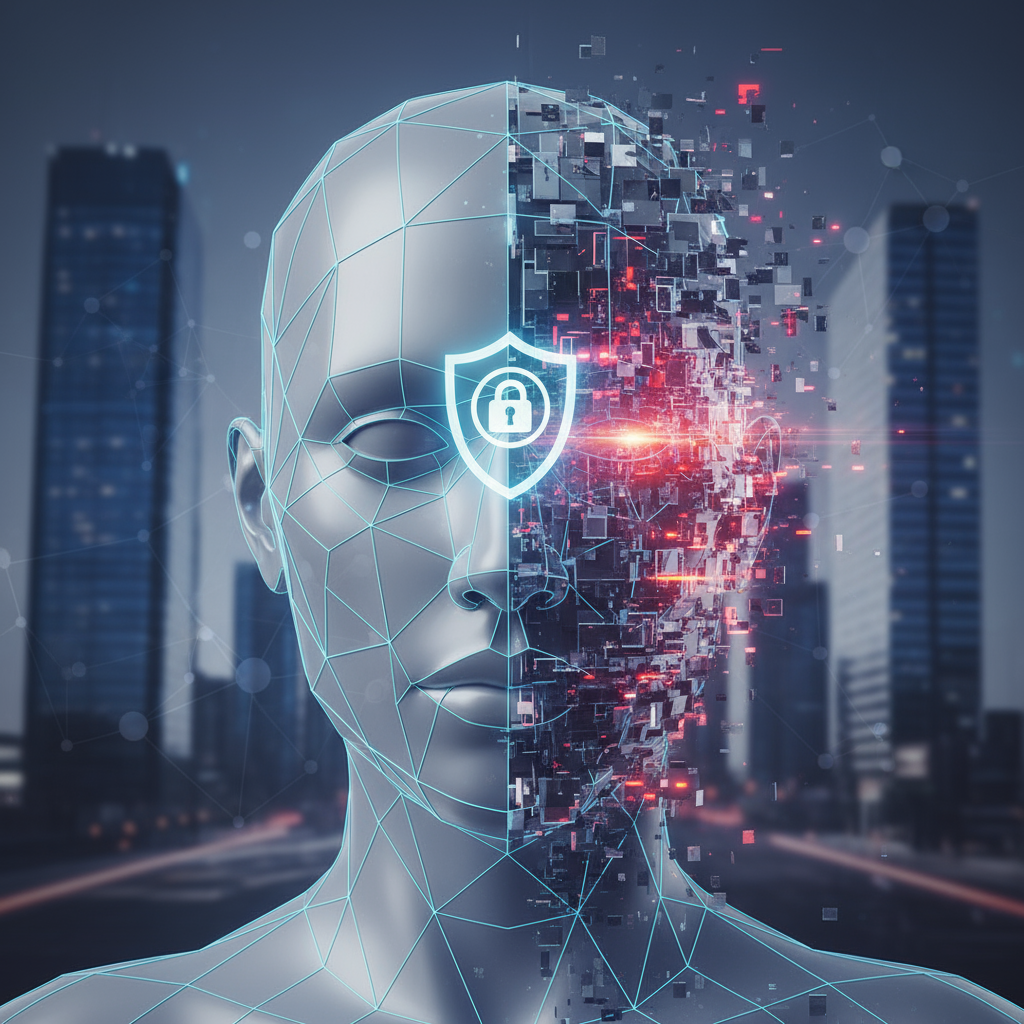Decoding Deepfakes: How Copyrighting Faces Could Be Our New Digital Shield
The digital landscape is a dazzling, ever-evolving space, offering unprecedented connectivity and creativity. Yet, within its shimmering folds lurks a growing darkness: the deepfake. These eerily realistic, AI-generated images and videos, once relegated to the realm of science fiction, are now a chilling reality, capable of fabricating false narratives, defaming individuals, and even manipulating public opinion. As this threat escalates, a novel and potentially groundbreaking solution is emerging from an unexpected corner: Denmark, leading an EU push to copyright faces. This isn’t just about protecting celebrities; it’s about safeguarding personal identity, trust, and truth in our increasingly virtual world.
The Deepfake Dilemma: A Crisis of Trust and Identity
Imagine your face, your voice, or even your intimate moments, manipulated and broadcast online without your consent, saying or doing things you never did. This isn’t a hypothetical nightmare for many; it’s a stark reality enabled by deepfake technology. From revenge porn to political disinformation, the malicious applications of deepfakes are staggering. They erode trust in media, sow discord, and inflict severe emotional and reputational damage on their victims. We’ve seen examples permeate various sectors – politicians made to “say” inflammatory statements, celebrities subjected to non-consensual pornography, and even ordinary individuals targeted for harassment or fraud.
The existing legal frameworks often struggle to keep pace with the rapid advancements in AI. Defamation laws can be slow and difficult to apply in cross-border digital contexts. Privacy laws offer some protection, but once a deepfake is unleashed, the damage is often irreversible. The challenge lies in punishing the perpetrators and, more importantly, proactively preventing the creation and dissemination of these digital doppelgängers. The very essence of what it means to be an individual with a unique identity is under assault, demanding innovative and robust countermeasures.
Denmark’s Bold Proposal: Copyrighting the Human Face
Enter Denmark, proposing a revolutionary approach: extending copyright protection to the human face. This isn’t about claiming ownership of biological features in a philosophical sense, but rather establishing a legal framework that treats an individual’s digital likeness as intellectual property. The core idea is that if your face, as a unique recognizable entity, is protected by copyright, then any unauthorized use or manipulation of it – such as in a deepfake – would constitute copyright infringement.
Think of it like an artist’s painting or a musician’s song. When someone uses that copyrighted work without permission, they face legal repercussions. Denmark’s proposal seeks to apply a similar principle to the human face, arguing that the unique combination of features, expressions, and overall visual identity is a form of personal intellectual property. This could provide a much more direct and powerful legal weapon against those who create and distribute deepfakes, offering victims a clearer path to legal recourse and potentially acting as a significant deterrent to would-be deepfake creators.
The Path Forward: Challenges, Implications, and the EU’s Role
While the concept is intriguing and potentially transformative, its implementation presents a complex set of challenges and implications.
- Defining “Copyrightable Face”: How would this copyright be registered or recognized? Would it be automatic at birth, or require some form of digital registration? How would it distinguish between a genuine photographic likeness and a deepfake?
- Enforcement Across Borders: The internet knows no borders. Even with EU-wide legislation, enforcing copyright against deepfake creators operating from different jurisdictions would be a significant hurdle. International cooperation and harmonization of laws would be crucial.
- Impact on Art and Satire: How would this affect artistic expression, caricature, or satire that uses recognizable public figures? Clear lines would need to be drawn to prevent overreach and stifle legitimate creative works.
- Technological Detection: Even with legal backing, the ability to effectively detect deepfakes, attribute them, and prove copyright infringement relies heavily on advanced forensic tools and AI detection methods.
- The “Right to be Forgotten” in a New Light: This move could also intertwine with existing data protection regulations like GDPR, adding another layer to the “right to be forgotten” and the control individuals have over their digital personas.
Denmark’s leadership in pushing this within the European Union is pivotal. If adopted, an EU-wide framework could set a global precedent, influencing legal approaches in other jurisdictions struggling with the deepfake crisis. The EU, often at the forefront of digital rights and regulations, has the clout to drive this conversation and potentially forge a unified response that could make a real difference in the fight against digital identity manipulation. This initiative reflects a broader recognition that our digital identities require the same, if not greater, protections as our physical selves.
A Glimmer of Hope in the Deepfake Battle
The deepfake phenomenon is more than just a technological novelty; it’s a profound challenge to our collective trust, individual autonomy, and the very fabric of truth in the digital age. Denmark’s initiative to copyright faces, while ambitious and complex, represents a significant and innovative step towards reclaiming control. It signals a shift from simply reacting to deepfake attacks to proactively establishing legal safeguards around our most fundamental form of digital identity – our likeness.
As discussions unfold within the EU, the world will be watching. The success of this endeavor could pave the way for a more secure and trustworthy digital environment, where individuals are empowered to protect their identities from malicious manipulation. It’s a reminder that while technology advances, so too must our legal and ethical frameworks, ensuring that innovation serves humanity rather than undermining it. The fight against deepfakes is far from over, but Denmark is offering a compelling new weapon, giving us a glimmer of hope in the battle for digital truth.
